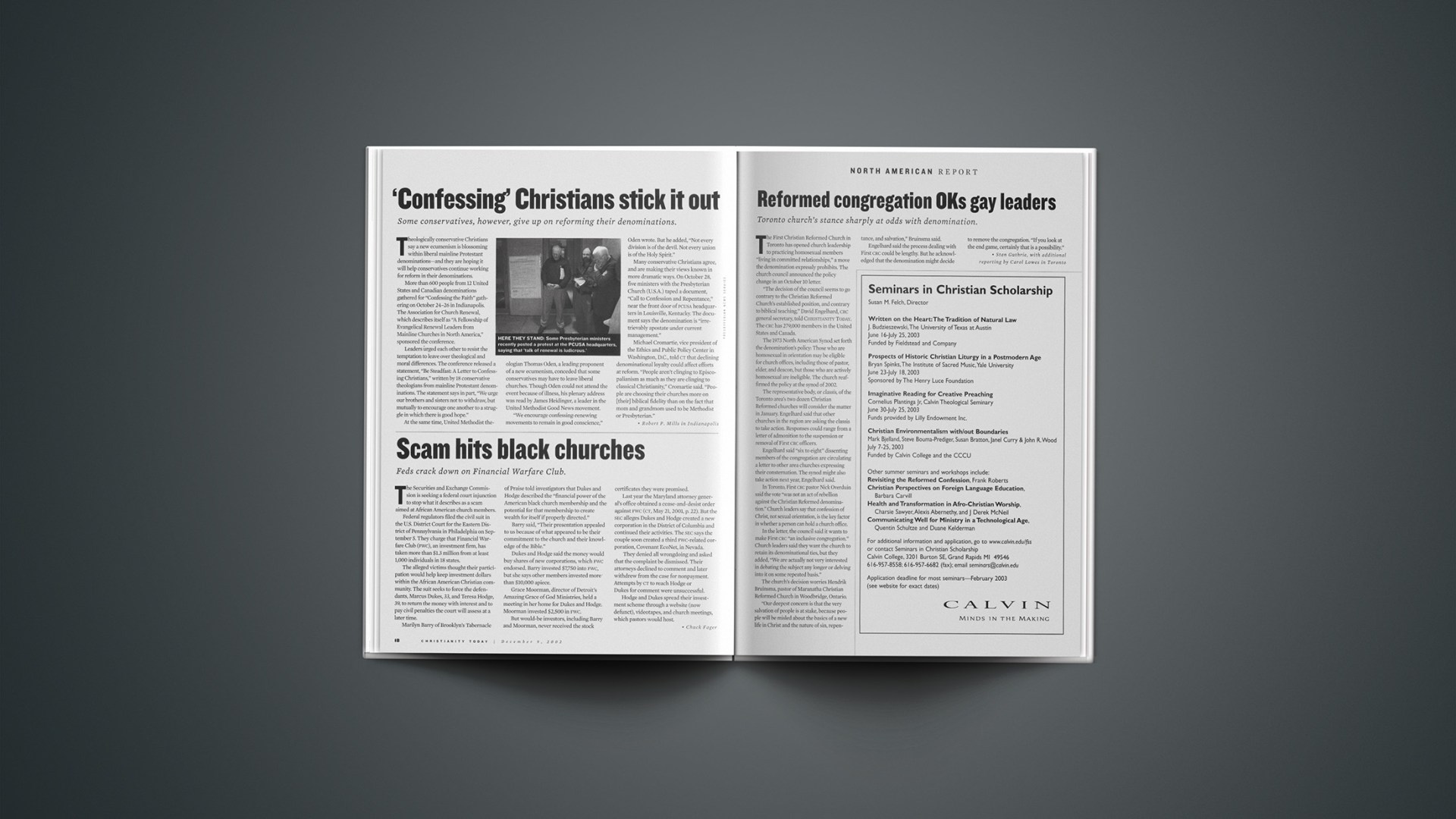Theologically conservative Christians say a new ecumenism is blossoming within liberal mainline Protestant denominations—and they are hoping it will help conservatives continue working for reform in their denominations.
More than 600 people from 12 United States and Canadian denominations gathered for “Confessing the Faith” gathering on October 24-26 in Indianapolis. The Association for Church Renewal, which describes itself as “A Fellowship of Evangelical Renewal Leaders from Mainline Churches in North America,” sponsored the conference.
Leaders urged each other to resist the temptation to leave over theological and moral differences. The conference released a statement, “Be Steadfast: A Letter to Confessing Christians,” written by 18 conservative theologians from mainline Protestant denominations. The statement says in part, “We urge our brothers and sisters not to withdraw, but mutually to encourage one another to a struggle in which there is good hope.”
At the same time, United Methodist theologian Thomas Oden, a leading proponent of a new ecumenism, conceded that some conservatives may have to leave liberal churches. Though Oden could not attend the event because of illness, his plenary address was read by James Heidinger, a leader in the United Methodist Good News movement.
“We encourage confessing-renewing movements to remain in good conscience,” Oden wrote. But he added, “Not every division is of the devil. Not every union is of the Holy Spirit.”
Many conservative Christians agree, and are making their views known in more dramatic ways. On October 28, five ministers with the Presbyterian Church (U.S.A.) taped a document, “Call to Confession and Repentance,” near the front door of PCUSA headquarters in Louisville, Kentucky. The document says the denomination is “irretrievably apostate under current management.”
Michael Cromartie, vice president of the Ethics and Public Policy Center in Washington, D.C., told CT that declining denominational loyalty could affect efforts at reform. “People aren’t clinging to Episcopalianism as much as they are clinging to classical Christianity,” Cromartie said. “People are choosing their churches more on [their] biblical fidelity than on the fact that mom and grandmom used to be Methodist or Presbyterian.”
Copyright © 2002 Christianity Today. Click for reprint information.
Related Elsewhere
Christianity Today and the Pittsburgh Post-Gazette have both profiled the growing “confessing church movement.”
The Confessing Church Movement site offers links to news stories, commentary pieces, and other resources.









